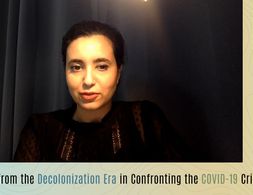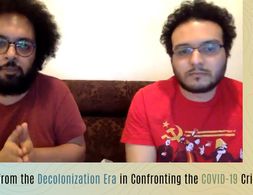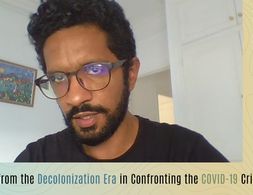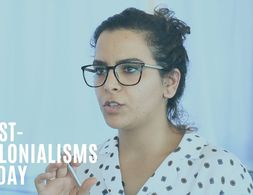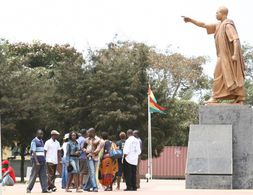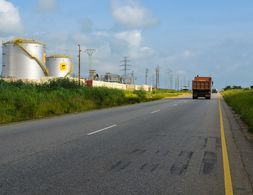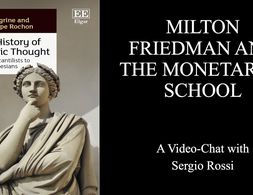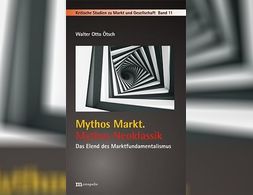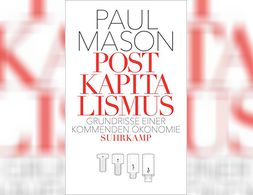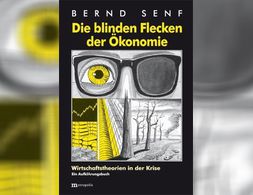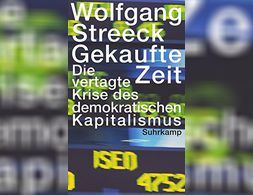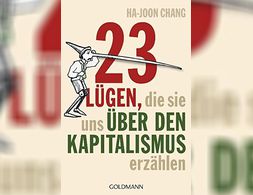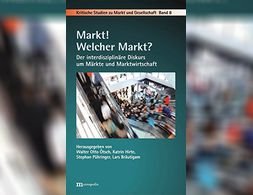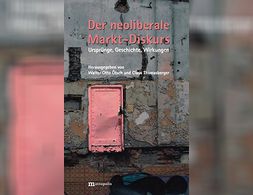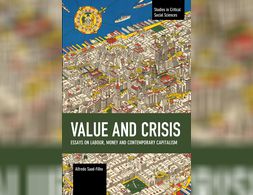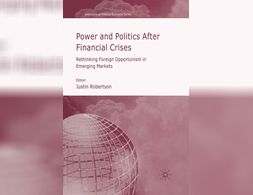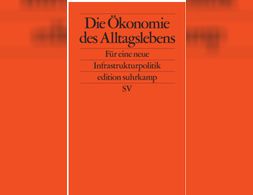80 Ergebnisse
Jihen Chandoul, a member of the Post-Colonialisms Today Working Group, discusses the impact of import-dependency on African food supply chains since the onset of the COVID-19 pandemic.
Post-Colonialisms Today researchers Kareem Megahed and Omar Ghannam discuss the importance of industrial policy during the pandemic to improve domestic capacity for manufacturing essential goods.
Post-Colonialisms Today researcher Chafik Ben Rouine looks to Tunisia’s post-independence central banking method to provide insight on what progressive monetary policy can look like.
Tetteh Hormeku-Ajei, member of the Post-Colonialisms Today Working Group, provides insight on the history of primary commodity export dependence in Africa, and relates it to the difficulties African governments are facing finding necessary resources to tackle the COVID-19 pandemic.
Yao Graham, coordinator of Third World Network- Africa, reflects on lessons learned from past Economic Partnership Agreements (EPAs), specifically as they relate to the Post-Cotonou Agreement.
Post-Colonialisms Today researchers Kareem Megahed and Omar Ghannam explain how early post-independence Egypt sought economic independence via industrialization.
Kareem Megahed, Omar Ghannam and Heba Khalil, from Post-Colonialisms Today, provide insights on the early post-independence industrialization project in Egypt, in which the state played a central coordinating role.
This article introduces the series, “Reclaiming Africa’s Early Post- Independence History,'' from Post-Colonialisms Today. It explores the policies and thinking of African governments in the early post-independence period, and the lessons for today’s struggles for political and economic agency on the continent.
In this roundtable conversation, Post-Colonialisms Today members, Omar Ghannam, Kareem Megahed and Tetteh Hormeku-Ajei, look to policies from early post-independence Africa to tackle issues exacerbated by the COVID- 19 pandemic.
In this article, Tetteh Hormeku-Ajei and Camden Goetz discuss the ongoing impacts of colonialism on Africa’s natural resources.
In this article, Jihen Chandoul discusses the importance of food sovereignty in Africa, reflecting on the continent’s early post independence movements for self sufficiency.
"Yuliya Yurchenko is a senior lecturer and researcher in political economy at University of Greenwich. She is currently in Ukraine on an extraordinary leave. And while she writes that she is, for the moment, in relative safety, that could change any moment. Being a Ukrainian, an activist and an academic, Yuliya traveled to Ukraine on Feb 19, 2022 as part of a fact-finding and solidarity mission with a number of MPs, trade unionists and journalists. The goal, she says, of this mission is to connect with civil society organizations, trade unions, activists and politicians, and “to express direct, cross-border solidarity from the UK working class to the Ukrainian working class.”
To celebrate the forthcoming book A brief history of Economic Thought From the Mercantilists to the Post Keynesians edited by Louis Philippe Rochon and Hassan Bougrine Edward Elgar Louis Philippe Rochon sat down with celebrated author and scholar Sergio Rossi to discuss his contribution Milton Friedman and the Monetarist School …
Gerald Friedman UMassEconomics University of Massachusetts at Amherst
Neoliberalism is dead. Again. After the election of Trump and the victory of Brexit in 2016, many diagnosed the demise of the ideology of Margaret Thatcher, Ronald Reagan, Augusto Pinochet, and the WTO. Yet the philosophy of the free market and the strong state has an uncanny capacity to survive and even thrive in crisis.
Viele Bereiche der Gesellschaft, die früher eigenen Regeln gefolgt sind, haben sich einer wirtschaftlichen Effizienzlogik unterworfen. Die Ökonomik hat damit den Status einer gesellschaftlichen Leitwissenschaft errungen. Das vorliegende Buch beschreibt und kritisiert die Transformation der Ökonomik in eine Wissenschaft von „dem Markt“ (in der Einzahl).
Heterodox Macroeconomics offers a detailed understanding of the foundations of the recent global financial crisis
Drei Dinge wissen wir: Der Kapitalismus hat den Feudalismus abgelöst; seither durchlief er zyklische Tiefs, spätestens seit 2008 stottert der Motor. Was wir nicht wissen: Erleben wir eine der üblichen Krisen oder den Anbruch einer postkapitalistischen Ordnung?
Während im Zuge der Globalisierung immer mehr Lebensbereiche den wirtschaftlichen Sachzwängen unterworfen werden, ist das Bewußstsein für die 'blinden Flecken' der Ökonomie bisher wenig entwickelt. Dabei haben die Wirtschaftstheorien in der Vergangenheit bei der Lösung von Krisen schon mehrmals versagt. Und heute?
Diane Perrons and Sigrid Stagl combine feminist and critical environmental economics perspectives to develop a critique of the free market growth model and offer new ideas for a more sustainable gender equitable model of development in the interests of all.
Die Krise hält uns in Atem und erzeugt zugleich ein diffuses Gefühl der Ratlosigkeit. Auf schier unüberschaubare Problemlagen folgen Maßnahmen, die wie Notoperationen am offenen Herzen der westlichen Welt wirken - durchgeführt ohne Kenntnis der Krankengeschichte. So ernst die Lage ist, so wenig scheinen wir zu verstehen, was genau vor sich geht.
Der freie Markt existiert nicht, „Chancengleichheit“ heißt nicht „gleiche Chancen für alle“, die Erfindung der Waschmaschine hat die Welt tiefgreifender verändert als das Internet.
Until the end of the early 1970s, from a history of economic thought perspective, the mainstream in economics was pluralist, but once neoclassical economics became totally dominant it claimed the mainstream as its own. Since then, alternative views and schools of economics increasingly became minorities in the discipline and were considered 'heterodox'.
‚Markt‘ ist einer der wichtigsten Begriffe der Ökonomik. Die meisten bezeichnen
das Wirtschaftssystem als ‚Marktwirtschaft‘ oder als ‚soziale Marktwirtschaft‘. Markt ist aber ein vieldeutiger und kaum erforschter Begriff, weder was seine Theoriegeschichte noch seine institutionelle Ausgestaltung oder die Wirkungen des Gebrauchs von „dem“ Markt (im Sinne eines agierenden Subjekts) angeht.
Die gegenwärtige Krise ist mehr als eine Krise der Wirtschaft. Sie ist auch eine Krise des neoliberalen Projekts, das die Wirtschaft und die Gesellschaft nachhaltig verändert hat. Es beruht auf dem vorbehaltlosen Glauben an den ‚freien Markt‘, an die Selbstregulierung eines blinden Mechanismus und an die segensreichen Wirkungen der Marktkräfte.
Value and Crisis brings together selected essays written by Alfredo Saad-Filho, one of the most prominent Marxist political economists writing today. Divided into two parts, "Essays on the Theory of Value" and "Essays on Contemporary Capitalism," this book examines the labour theory of value from a rich and innovative perspective from which fresh insights are derived.
Foreign exploitation of economic crises in the developing world has been a central claim of neoliberal critics. This important and recurring international theme is the subject of closer scrutiny in this new collection, where contributors offer competing interpretations of the interaction between international and domestic forces after crises.
This fresh and unique textbook provides students and general readers with an introduction to economics from a new and much needed perspective, characterised by its uniquely pluralist, sustainable, progressive and global approach.
Unlike traditional textbooks, Introducing a New Economics contains the key concepts of pluralism, sustainability and justice. It provides students with the central questions covered by economics including resources, work, employment, poverty, inequality, power, capital, markets, money, debt and value.
Das Buch "Ökonomie des Alltaglebens" stößt die Debatte darüber an, wie die europäischen Gesellschaften die Bereitstellung von essentiellen Gütern und Dienstleistungen unserers alltäglichen Lebens wie der Strom- oder der Gesundheitsversorgung organisieren sollten.
It has become a contentious term in- and outside of economic policy: austerity. Allegedly the culprit behind the shortfalls of governments' reaction to the Great Financial Crisis, the policy makes for a spirited debate.
With a focus on Chile, Pinochet’s Economic Accomplices: An Unequal Country byForce uses theoretical arguments and empirical studies to argue that focusing onthe behavior of economic actors of the dictatorship is crucial to achieve basic objectivesin terms of justice, memory, reparation, and non-repetition measures.
This book highlights the political economy of wealth and income inequality in Latin America. The author segments his analysis to separately evaluate the economic, social, and political costs of inequality building on country case studies. It draws well-contextualized lessons from the Latin American experience that is important to consider for other regional contexts, especially for social policies of nations within the 'Middle Income Trap'.
Wir nutzen Cookies. Klicke auf "Akzeptieren" um uns dabei zu helfen, Exploring Economics immer besser zu machen!

